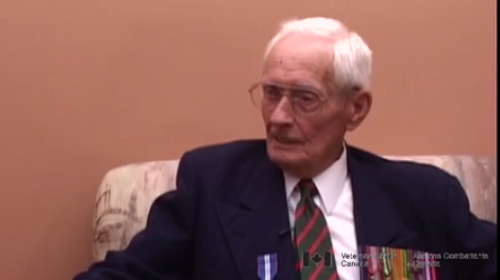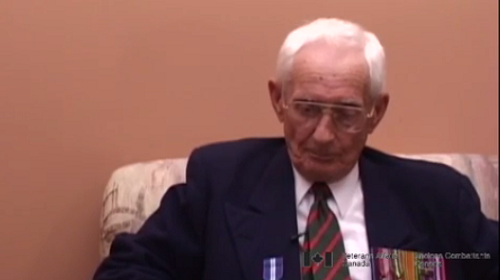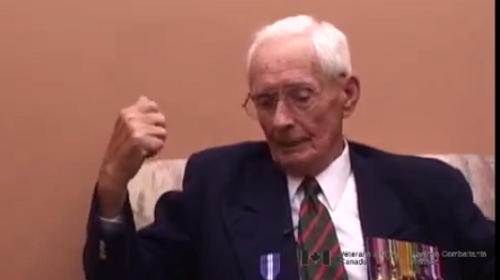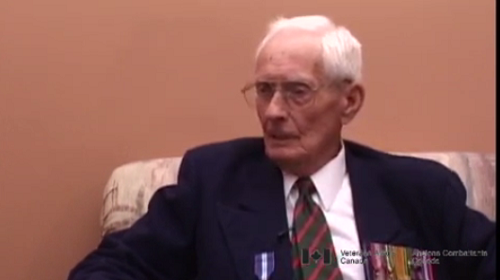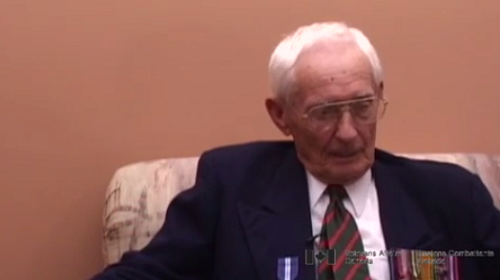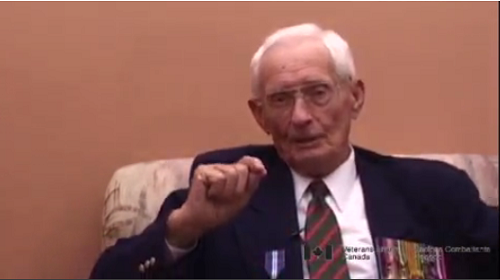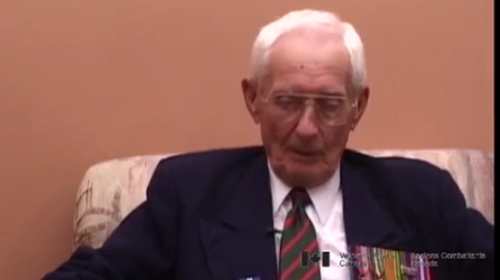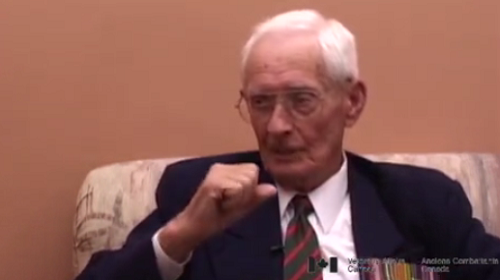The Jap bosses would wrap their lunch in newspapers.
They had a little paper about this square
and only four, five sheets I suppose.
So we had a fellow in the camp who could interpret
the Japanese language to Chinese and then to English.
So we'd guard him well and put him in this corner
and made sure they got lots of guards
that he couldn't be surprised while he'd translate.
So he'd just translate the parts that we wanted to find out any news.
And they would have a little numbers here and there
along the border, once in a while.
So if you could find that and if you knew something
and some of them did, about geography,
you could trace where this little map was quite liable to be made.
And that Jap that day when we were caught,
after he asked me, “Why did you make the map?”
Well, I said, “I made it because I don't want to stay here any longer.
I want to know where I'm going pretty soon.
This war will soon be over.” I told him right up.
So he hit me in the face hard as he could
and he was quite a big rugged fellow. Yeah.
But he had taken his belt off
and he had hanged it on one of these pegs with his sword.
And when he hit me, I don't know what,
I knew the war was going to end within a month or so maybe.
I almost grabbed his sword out of that scabbard
and took his head right off,
but I said, well, he'll kill me, that's for sure,
but they'll kill maybe everybody else in the camp.
That alone saved his head cause I was ready to. It was finished.
The war was finished, so I don't expect I'll get out alive.
I was tempted to take that sword off there
and hit him a good punch at the same time and then slash him.
Well, they just took us and put us into a little place about this square
in, down in the basement and it had a little gate
about this wide, this high, with openings.
It had bars in it, three or four bars.
So there was a guard outside standing out there,
but we were on the inside down in there and it was cold.
It was on the 17th of March and we were on the floor
and our feet were freezing and our legs had swollen,
so some of the guys would collapse.
So when they collapsed they'd open that door where they put us in
and pull them fellows out there and beat them.
So a fellow named Frankie Ebden, small and he had,
a bullet had caught him right in the chin and it broke his jaw
and came out back here and he was collapsing.
So he was in the middle of the room.
See there was one of us in each corner and he, there wasn't room,
there's only four corners. So I whispered somehow,
I said, “Frankie, I'll take your place.
When the Jap's not noticing move over to my place in the corner.”
Cause once you're in the corner,
you could lean ahead and put your head against the wall
and that would take the pressure off your heels.
So you wouldn't fall then.
You see, it's the steady pressure down your spine, you'll collapse.
So he did that so when the Jap just turned at that time
and he rammed that bamboo spear he had right through
and he caught me here in the side. So when he hit me there,
I had no clothes, just this shorts on. I went like that so he pulled back
and he poked me again so he got me in the arm.
So, he didn't do anything more, that was it.
He said, “That's enough for you.”
Anyway, when they took us out of there and they made us work,
I forget how many days now, without going down in the mine anymore.
Yeah. They just kept us under guards for about a couple of weeks.



